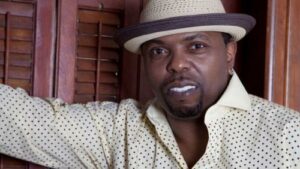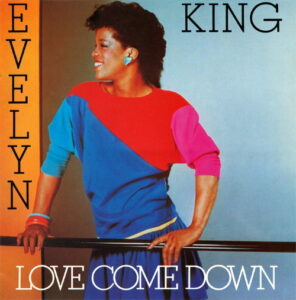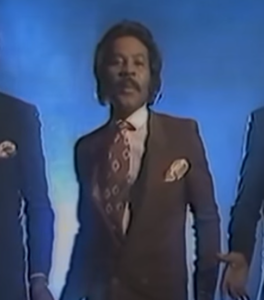Legendary jazz keyboardist and producer George Duke once described vocalist Kevin Whalum as "butter," and that’s about the best depiction I’ve heard. Whether covering soul, jazz, scat or gospel, Whalum’s smooth, sweet voice (think of Will Downing as a tenor) makes him one of the most exciting new artists I’ve heard in quite awhile.
The younger brother of noted jazz saxman Kirk Whalum, Kevin grew up in Memphis in the shadow of Olivet Baptist Church, where his father, the Rev. Kenneth T. Whalum, served as pastor. The church, known as a magnet for great singers and musicians, became a centerpiece of Kevin’s life as a youngster, creating both a religious and a musical foundation for him. Young Kevin observed and absorbed the music at Olivet, all of which influenced him as grew.
After graduating from Morehouse College, Whalum moved to Chicago, where he worked as a pharmaceutical sales rep during the day and played with a band called Fast Forward at night. It was there that he met his wife Camille and married in 1996. Two years later, he moved to Nashville, which was then becoming the epicenter of an exciting confluence of gospel, jazz, soul and folk led by such artists as Tommy Sims and Michael McDonald. Still moonlighting as a musician, Kevin appeared as a guest vocalist on brother Kirk’s noted 1997 release, The Gospel According To Jazz, Chapter 1, and as part of Kirk’s band at that year’s Stellar Awards. A couple years later he made the musical plunge, turning his night job into his full-time job, and becoming a popular live and session vocalist in the burgeoning Nashville Soul Music scene.
His journey ultimately led him to create Timetable, his independently released debut album. Timetable was the result of many years of dreaming and songwriting, and it sounded like Whalum is trying to condense a lifetime of experience on it, as the album moved among multiple genres while attempting to fully introduce Whalum and his talents to the audience. The result was an exceptional debut that, despite the various styles, came across as a thematic album that focuses on Whalum’s three loves: Faith, family and music (and sometimes conflicts between them).
Whalum spent the next several years as an in-demand background singer before returning to the studio with notable producers George Duke and Rex Rideout, among others. The result was the very enjoyable One Life To Love, which was released in 2008 to positive reviews.
By Chris Rizik









